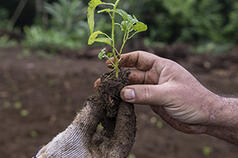Prolinnova (a network of organisations around the globe working on documenting and supporting farmer-led innovations and their related processes initiated with GFAR's support) has partnered with the Global Forum on Agricultural Research & Innovation to conduct a survey to gather members’ perceptions about innovation. The objective of the survey is to better inform GFAR constituencies about the type of multistakeholder innovation processes and results that emerge when small-scale farmers take a leading role.
Introduction
The Independent Science for Development Council (ISDC) is a standing panel of impartial, world- class scientific and innovation experts providing rigorous, independent strategic advice to the CGIAR System Council and other stakeholders. ISDC contributes to the strategic and portfolio planning and positioning of CGIAR. ISDC provides an important advisory function that is integral to the governance of One CGIAR. It is vital therefore that ISDC includes skills, disciplines and backgrounds relevant to the One CGIAR agenda.
DeSIRA-LIFT provides support services to the DeSIRA Initiative funded by DG INTPA (European Commission). DeSIRA-LIFT are currently looking for experts for two short-term opportunities in support of the Forum for Agricultural Research in Africa (FARA) and members work on Climate Smart Agriculture. Interested experts are requested to submit a CV and short motivation letter to desira.lift@wur.nl with a copy to ofatunbi@faraafrica.org.


